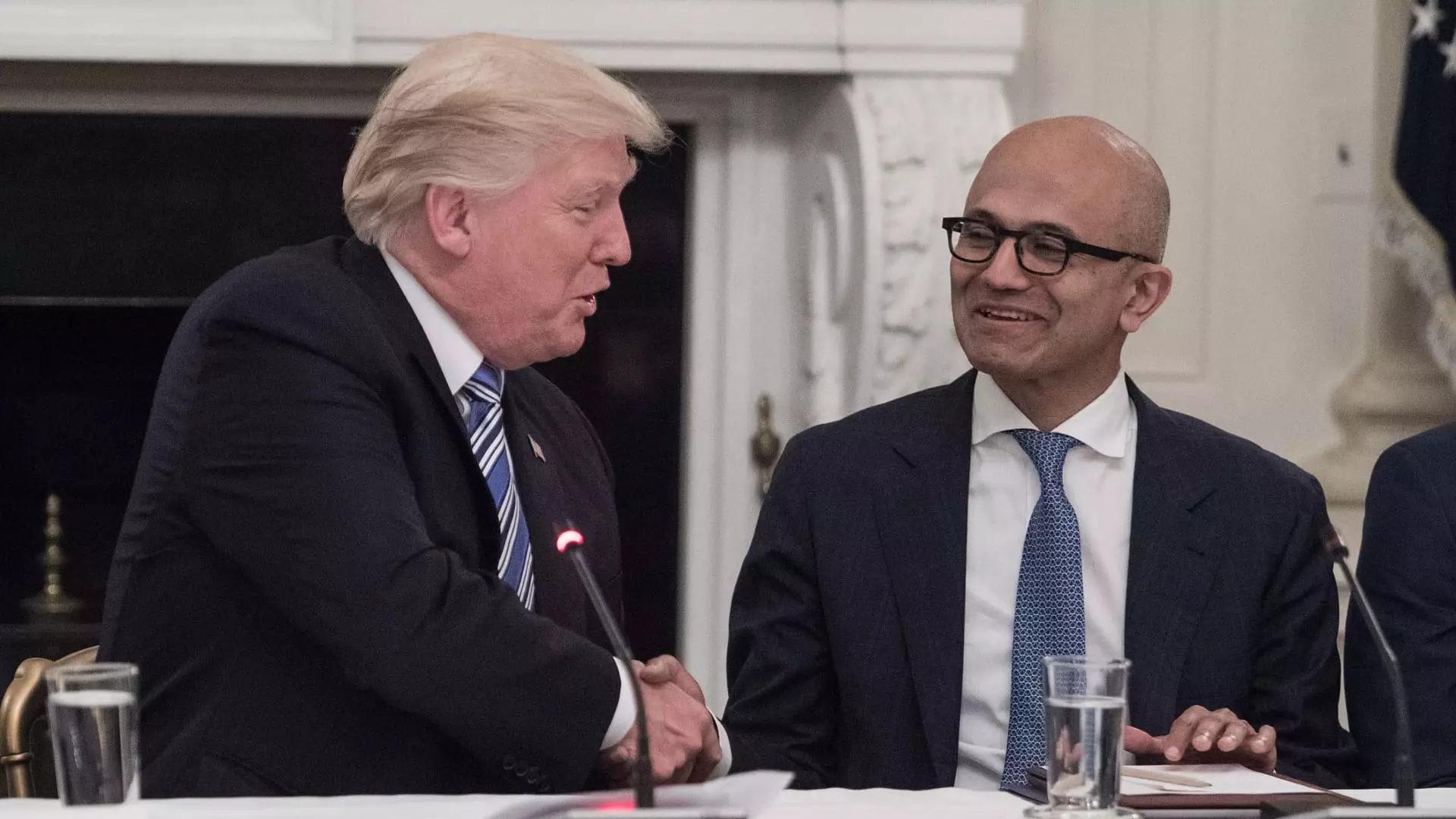In a striking alignment of motives and ambitions, major technology firms are stepping forward to support the inauguration of President-elect Donald Trump, showcasing a blend of political strategy and corporate identity. On Thursday, Microsoft announced its $1 million contribution to Trump’s inauguration fund, a move that brings the software giant in line with other industry leaders. Google also pledged a similar amount the same day, bolstering the notion that these tech titans share a common objective during a tumultuous political climate.
Even as many companies grapple with their public perceptions, the decision to contribute significantly to an inauguration fund sends a resounding message. It exemplifies an intricate dance between corporate interests and politics, where financial backing might also be seen as a means of ensuring favorable policies, particularly in sectors crucial for technological advancement, such as artificial intelligence.
The actions of prominent executives underscore the weight of individual influence in shaping corporate donations. OpenAI’s Sam Altman pledged $1 million out of his personal resources, while Apple CEO Tim Cook reportedly plans to do the same, reflecting a deeply rooted connection between leadership aspirations and political involvement. Moreover, Elon Musk, the head of Tesla and currently the richest individual in the world, has taken on an advisory role for Trump, hinting at the potential for collaboration on policies affecting innovation and technological expansion.
The repercussions of these alignments extend beyond mere financial contributions. They may pave the way for strategic discussions that could influence regulatory environments and shape the trajectory of emerging technologies. Tech leaders are likely banking on the notion that their financial support secures a more favorable landscape for future investment and growth.
Microsoft’s philanthropic gestures are not new; the company had previously donated $500,000 to Trump’s first inauguration and matched that amount for President Joe Biden’s. This dual support raises questions about the company’s overarching strategy in a politically polarized environment. Under the leadership of CEO Satya Nadella, Microsoft’s history of engagement with the Trump administration has been characterized by insightful participation and strategic negotiations, such as discussions surrounding the potential acquisition of TikTok.
During a time when many tech companies publicly challenge governmental policies, Microsoft seems to embrace a more pragmatic approach, aligning with whichever administration might push forward policies beneficial to their interests, especially in artificial intelligence. Brad Smith, the company’s vice chair, emphasizes the necessity for a strategic international framework to advance American AI, suggesting that political contributions are both a gesture of goodwill and a calculated move to sway policies in their favor.
Broader Implications for the Industry
As technology firms consolidate their commitments to Trump’s administration, the implications resonate across the business landscape. Companies face increased scrutiny over their associations and the ethical ramifications of their financial support. While seeking favorable governance, they must also contend with the expectations of a politically aware customer base that increasingly values corporate responsibility.
The interplay of corporate donations and political alignment among major tech companies like Microsoft and its peers reflects not only a strategic maneuvering to foster beneficial policy environments but also the complicated relationship between industry giants and governmental transition. As these contributions unfold, the long-term impact on technological innovation, regulatory frameworks, and public perception will undoubtedly shape the future of Big Tech in America.


Leave a Reply